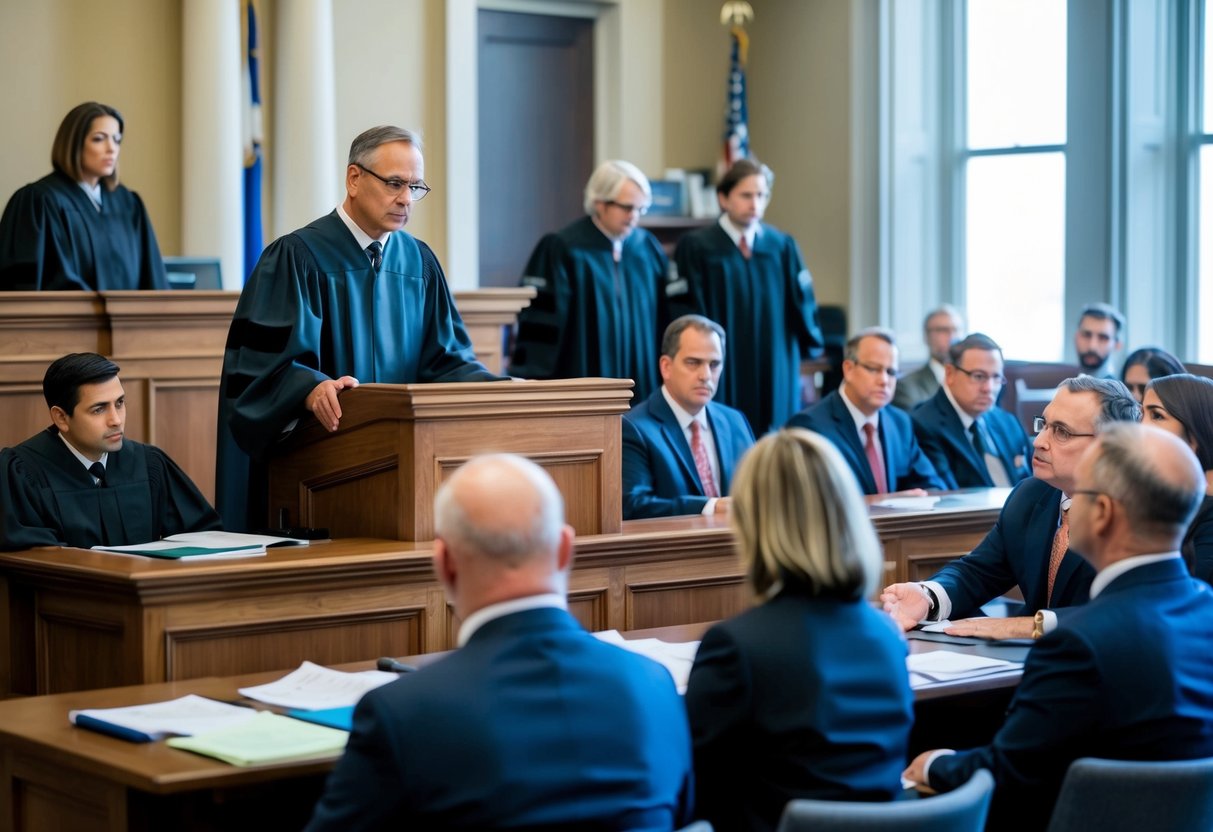Understanding the Felony Charge Process in Marietta

In Marietta, the felony charge process involves several steps, from the initial arrest to obtaining legal representation. It’s crucial to know one’s rights and understand key procedures such as bail and the role of a criminal defense attorney.
Initial Arrest and Rights
The process begins with an arrest, often initiated by an arrest warrant issued by the court. Police officers will take the individual into custody and inform them of their constitutional rights, such as the right to remain silent and the right to an attorney.
Rights are given to prevent self-incrimination and to ensure fair treatment. It’s important to request a lawyer immediately to avoid making statements that could be used against you. Being aware of your rights can impact the outcome of your case significantly.
Bail and Pre-Trial Release
After an arrest, the next step is typically a bail hearing. During this hearing, a judge decides if the individual can be released on bail or own recognizance. Bail is a set amount of money paid to ensure that the accused returns for future court dates.
If the individual cannot afford bail, they may remain in custody until the trial. Alternatively, being released on own recognizance means that the judge trusts the individual to return without paying bail. The conditions of release can vary based on the severity of the charge and the accused’s criminal history.
The Role of a Criminal Defense Attorney
Engaging a criminal defense attorney is critical throughout the legal process. A Marietta criminal defense attorney will guide the accused through legal challenges such as negotiating bail, gathering evidence, and representing them in court.
The initial consultation with an attorney provides an opportunity to discuss the case details and form a defense strategy. The lawyer’s expertise ensures that the accused’s rights are protected and offers the best chance for a favorable outcome.
From Arraignment to Trial

In Marietta, the path from arraignment to trial involves several key steps: the outcomes of arraignment, the role of plea bargains, and preparing for trial.
Understanding Arraignment Outcomes
Arraignment is the first court appearance in a criminal case. During arraignment, the defendant hears the charges and enters a plea. The possible pleas are guilty, not guilty, or no contest. A not-guilty plea leads to further court proceedings.
If the defendant pleads guilty, the case may not go to trial. Bail and release conditions are also discussed. The judge decides if the defendant can be released before trial and under what conditions. Prosecutors and defense lawyers present arguments for or against bail.
Plea Bargaining and its Impact
Plea bargaining is a critical step in the criminal justice system. During this process, the prosecutor and defense lawyer negotiate a plea deal. The defendant might plead guilty to a lesser charge or receive a reduced sentence.
The decision to accept a plea deal can depend on factors like the strength of the evidence and the potential penalties. Plea bargains help avoid a lengthy trial, saving time and resources. However, accepting a plea deal means the case won’t go to trial, and the defendant must agree to the plea terms.
Preparation for Trial
If the case goes to trial, both sides need to prepare thoroughly. This includes gathering evidence, interviewing witnesses, and developing a trial strategy. The prosecutor aims to prove the defendant’s guilt beyond a reasonable doubt.
The defense lawyer works to create doubt about the defendant’s guilt. Pretrial motions are often filed to resolve legal issues before trial. These can include requests to admit or exclude evidence. Both sides must be ready to present their case clearly and effectively to a judge or jury.
Sentencing and Beyond

Sentencing for a felony charge in Marietta can vary widely. It depends on the crime, the defendant’s past record, and state laws.
Different Types of Sentences
For felony charges, sentences may include prison time, fines, probation, or community service. In cases of severe crimes, the “seven deadly sins” which include murder and armed robbery, can result in the harshest penalties like life imprisonment or even the death penalty. First offenders might receive lighter sentences, such as probation or community service.
DUIs or driving under the influence, can also lead to prison time, fines, and suspension of a driver’s license. Sentences aim to both punish and rehabilitate offenders, helping them reintegrate into society.
Appeals and Post-Conviction Rights
After sentencing, a defendant has the right to appeal the court’s decision. The appeals process allows them to argue that legal mistakes affected the trial’s outcome. Post-conviction rights include filing motions for a new trial or seeking reduced sentences.
Employment can be hard to find for those with felony convictions. Legal resources are available to help formerly incarcerated individuals reintegrate. Understanding post-conviction rights is crucial for navigating this stage of the legal process. Appeals and other post-conviction options offer a way to challenge and possibly reduce sentences.




